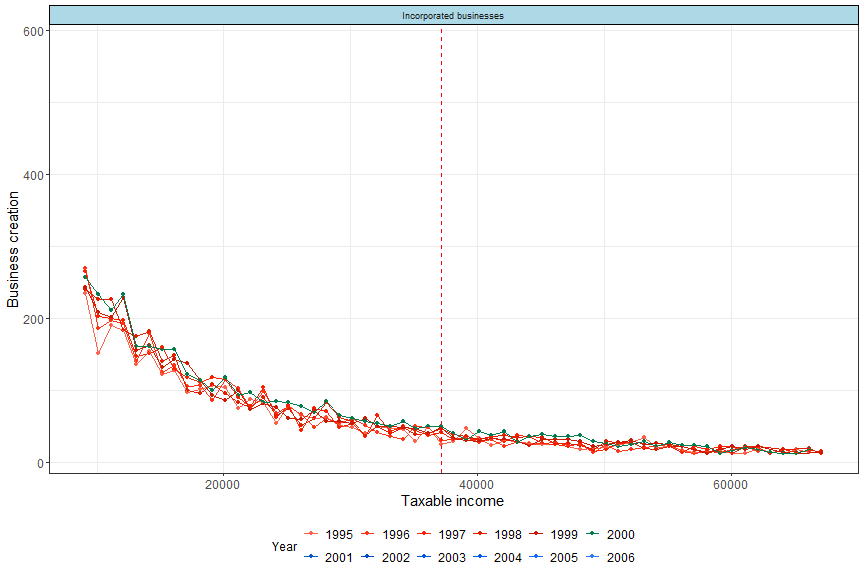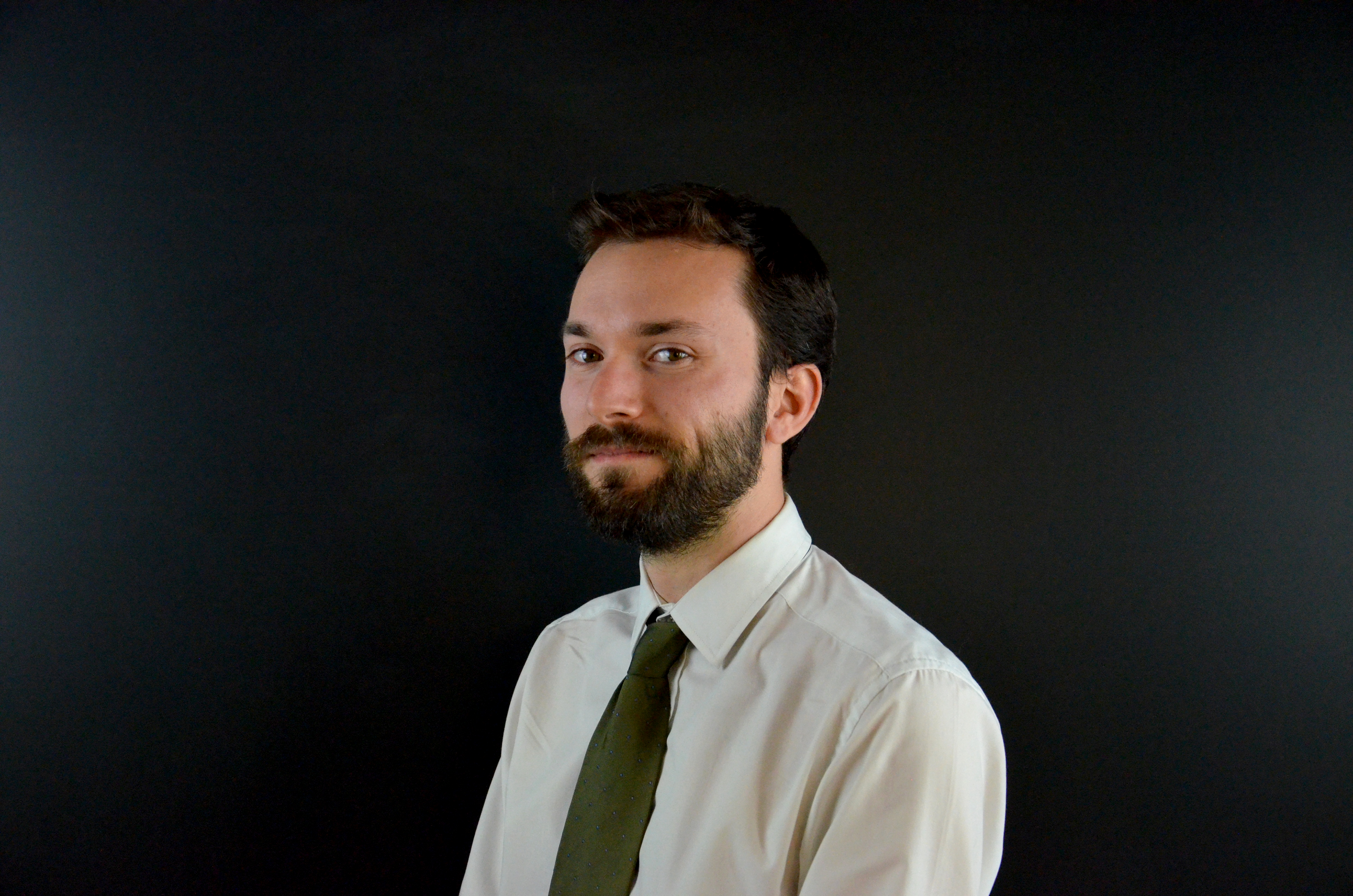About me
I am a 4th year PhD candidate at CREST, ENSAE Paris, Institut Polytechnique de Paris under the supervision of Pierre Boyer and Michael Visser since September 2022.
My research lies in the field of Public Economics where I especially study the different channels through which taxes affect corporate behavior using both theory and empirical analysis.
I visited the University of California, Berkeley, hosted by Emmanuel Saez during the 2025 Spring semester.
I am on the 2025/2026 academic job market.
References Pierre Boyer Michael Visser Bertrand Garbinti Emmanuel Saez
Contact: theo.valentin@ensae.fr
Job Market Paper
- Non-linear Corporate Income Tax: Learning, Intensive and Extensive Margins
The welfare implications of corporate tax reforms are made unclear by the variety of effects they generate. This paper estimates both the effect of frictions, especially attention, on the corporate taxable income elasticity and the business creation effect of corporate tax reforms. I study a reform in France that replaced the existing flat corporate income tax with a threshold-based two-rates progressive system. I rely on detailed administrative tax data and exploit a unique institutional feature, the reported tax amount. First, I infer that at most 19% of firms are inattentive to tax reforms, i.e. they use the pre-reform tax code instead of the current one. This implies a cost of inattention of 1.8% of their taxable income. Second, I exploit the excess mass at the threshold to estimate the elasticity and show that overall frictions attenuate it by 39% in the short-run. Third, I find a sizeable positive business creation effect of the reform. Using a two-way fixed effects PPML event-study design combined with treatment intensity variation at the county level, I estimate an average treatment effect of 15%. However, unincorporated businesses reacted to the lower average corporate tax rate by incorporating and by splitting revenues across multiple entities. This creates a pure tax revenue loss. Although this response is highly sensitive, rising by 45%, its magnitude remains limited. Overall, the welfare gains of moving from a linear corporate income tax to a progressive schedule are driven by business entry.
Firms’ reported tax amount (dotted) and true tax code (plain) before and after the reforms (2001-2002)

Business creation by taxable income, across years (pre-reform in red, post-reform in blue)

Paper presented at: UC Berkeley Public Finance Seminar (Berkeley, 2025), Center for Business Taxation Doctoral Conference (Oxford, 2025), UC Santa Barbara Brown Bag Seminar (Santa Barbara, 2025), University of Utah Lunch Seminar (Salt Lake City, 2025), EEA (Bordeaux, 2025), PSE Applied Economics Seminar (Paris, 2024), CESifo Public Economics Area Conference (Munich, 2024), ZEW Public Finance Conference (Mannheim 2024), The 80th Annual Congress of the International Institute of Public Finance (Prague, 2024)
Working papers
- Charitable Giving, Tax Design, and Tax Consent, with G. Fack, B. Garbinti, J. Goupille-Lebret
In this paper, we examine how the design of tax incentives for charitable giving influences donation behavior, and how non-monetary motives shape these responses. We focus on the French context, where a wealth tax has existed for several decades, and exploit multiple reforms that altered the marginal tax price of charitable gifts for wealth taxpayers. Our analysis draws on rich French administrative panel data linking the universe of income tax returns with the universe of wealth tax returns. We document strong heterogeneity in charitable giving behavior between wealth taxpayers and those subject only to the income tax, and we develop a conceptual framework to rationalize this finding. Using tax variation induced by the reforms, we study the main channels driving behavioral responses. First, we find evidence of a strong attachment to charities: despite being able to benefit from a lower marginal price of gifts, many wealth taxpayers deliberately continue to pay the higher marginal price. Finally, when individuals lose eligibility for the wealth tax credit, we observe limited substitution toward the income tax credit, which suggests differential tax aversion depending on the tax base to which the incentive applies.
Selected work in progress
- Taxing Digital Addiction
- Optimal Corporate Taxation with Welfare Weights
Non-academic Publications & Papers
- En 2020, la chute de la consommation a alimenté l’épargne, faisant progresser notamment les hauts patrimoines financiers : quelques résultats de l’exploitation de données bancaires, with Odran Bonnet and Tom Olivia, Note de conjoncture, 2021 (available in english here).
- Prédire l’activité économique à partir d’articles de presse, with Stéphanie Himpens and Guillaume Arion, Journées de Méthodologie Statistique de l’INSEE, 2022.
- Éclairage - L’activité économique française au travers d’articles de presse, Note de conjoncture, 2021 (available in english here).
Curriculum Vitae
If the PDF viewer doesn’t load, you can download it here.
TA sessions
- Econometrics 2, ENSAE Paris, Pr. Michael Visser (Graduate level, Spring 2023)
- Econometrics - 3A CI/MS, ENSAE Paris, Pr. Bertrand Garbinti (Graduate level, Fall 2022)
- Econometrics 1, ENSAE Paris, Pr. Xavier d’Haultfoeuille (Graduate level, Fall 2022)
- Industrial Organization, Université Paris Descartes, (Undergraduate level, Spring 2021)
